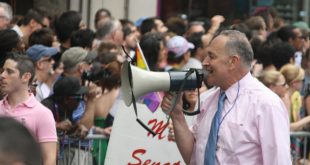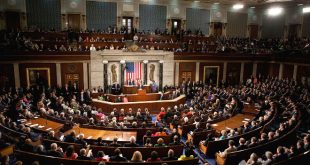
There have been several notable cases of racial fakery. Years ago, then-law professor Elizabeth “Fauxcahontas” Warren falsely claimed that her great-grandfather was Cherokee Indian. A diversity-starved Harvard University jumped at the opportunity to hire her. She was so good at the racial fakery that a 1997 Fordham Law Review article lauded now-Sen. Warren as Harvard Law School’s “first woman of color.”
Racial fakery for private gain has been going on for decades. In 1990, there was a highly publicized case of outright racial lying. Two white men, twins Philip and Paul Malone, took the Boston Fire Department test. They failed. It turned out that the Boston Fire Department was under a consent decree mandating racial preferences, back then euphemistically called affirmative action but today called diversity. The Malone brothers retook the test, this time identifying themselves as black. Again their scores weren’t high enough to be hired as whites, but they qualified under the lower standards for blacks and were hired. They worked for 10 years, until their racial fakery was discovered during a promotion proceeding. They were fired.
Then there’s Vijay Chokal-Ingam, brother of “The Mindy Project” actress Mindy Kaling. He pretended to be black to successfully gain admission to the Saint Louis University School of Medicine but later dropped out.
Recently, there was the case of Rachel A. Dolezal, who told everyone that she was a member of my race, even though both of her parents are white. She profited immensely from racial fakery. She became president of the Spokane, Washington, office of the NAACP and became an instructor of Africana studies at Eastern Washington University. To top that off, she gained membership on Spokane’s police oversight commission, where she examined police policies on race.
We must combat racial fakery. We can learn from South Africa. During its apartheid era, it, too, had a racial spoils system. The government combated racial fakery by enacting the Population Registration Act of 1950, which racially classified the country’s entire population.
The act laid down race definitions so as to thwart people, mostly “Coloureds,” from taking privileges set aside for whites. For example, it defined a white person as one who “is in appearance obviously white — and not generally accepted as Coloured — or who is generally accepted as White — and is not obviously Non-White.”
Despite South Africa’s careful attempts to define race, there was racial manipulation. A person charged with doing something prohibited for a native or Coloured might claim he had some white blood. The Population Registration Act ensured justice whereby a person aggrieved by a racial determination could appeal to a tribunal, known as the Race Classification Appeal Board. The act also provided that a third party could bring a complaint as to a person’s racial classification. It provided for heavy penalties for frivolous objections to another’s racial classification.
The Population Registration Act fortified both the Immorality Act of 1927, which prohibited sexual relations between Europeans and Africans, and the Prohibition of Mixed Marriages Act of 1949, which banned marriage between Europeans and Africans. I wouldn’t support the adoption of either one of those acts. But I do think that we need to adopt some of the features of South Africa’s Population Registration Act. Why?
If Americans are going to have laws that mandate special privileges in college admission and employment, we must prevent racial fakery. We cannot permit a white or Asian person to take an opportunity that by law belongs to a black person. There should be DNA criteria to accurately determine one’s race. Years ago in our country, “one drop” of Negro blood made it impossible for one to be white. With today’s technological advances, we could be more precise.
Racial classification is not without other benefits. Suppose one wants to marry and at the same time keep his bloodline pure. Say he’s a black man. Shouldn’t he be protected from a racial imposter like Rachel Dolezal?
COPYRIGHT 2015 CREATORS.COM
 Walter E. Williams is a professor of economics at George Mason University.
Walter E. Williams is a professor of economics at George Mason University.
 CURE News and Clergy Blog News and Commentary for Christians
CURE News and Clergy Blog News and Commentary for Christians




What ever happened to judging people by the content of their character, not the color of their skin? Why can’t we just say we are all human beings, not hyphenated beings?
Was this supposed to be published in The Onion? This is satire, right?
It’d be much simpler to just end the laws that mandate special privileges and carve-outs for people of certain race(s) in the name of diversity. Diluting the talent pool for any endeavor in the name of “diversity” has never helped anyone, including those that allegedly benefited from the “diversity” policies.
Were you hired for your position only because you’re black, Professor? If you were and you knew you got the job over a more qualified “non-minority” applicant, would you feel like you deserved the job?
I think Walter Williams is being sarcastic.